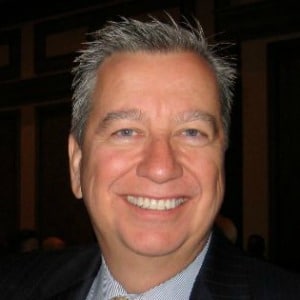
(By Radio Ink Chairman Eric Rhoads) A highlight of my career many decades ago was when Paul Harvey read the essence of one of my editorials on the air on his national noon broadcast. At the time there was a controversy about whether or not foreign ownership of radio and TV should be allowed, which I came out against.The fear was if Russian or Chinese investors owned radio and started to control content.
The Federal Communications Commission had always been sensitive to the concept of allowing too much power in the hands of one broadcaster because of the influence one could have over the country. If, for instance, a large broadcaster that controlled hundreds of radio stations decided to promote a particular political agenda, it could be devastating to the idea of equal balance. And much later, this was one of the primary arguments against consolidation and putting too many stations in single markets into the hands of one. Of course, today the mindset seems to be “If it’s good for business, why not do it, and do it more?”
It reminds me of a joke. Bob Pittman, Mary Berner, and David Field walk into a bar….
But it would be no joke if those three agreed quietly behind the scenes that they could change the face of America by eliminating a particular voice or format, with whom they disagreed. I don’t know (or want to know) the politics of these three great broadcasters — and two are national syndicators who pretty much control the majority of content on stations in America — because most stations operate via satellite programming. This is huge concentration of power. Tough the FCC does not regulate radio networks because they are not entities, which own stations. If you want to take concentration of power further, Pittman’s iHeart owns Katz, which is the ad rep for most of the radio stations in the U.S. Thankfully they seem to be responsible people.
But, in spite of there being potential danger in that much power being concentrated, the NAB board is pushing even more consolidation and putting more stations per market into the hands of very few. I’m actually not here to talk about radio or TV this time.
Instead, I’m here to talk about Google and Facebook, Apple and Amazon.
My degree in rocket science isn’t really necessary to figure out why concentration of power among these tech giants is one of the most dangerous things we face in America in the protection of our democracy.
I’m a user of Gmail (probably not for long after they read this), and it’s clear that Google’s AI technology is reading all my emails because it provides automated answers I can click on. And if I decide to write my wife about cat food, suddenly cat food ads show up at the side… then they follow me at every website I visit.
A Facebook user noticed that after conversations with his wife that certain ads started showing up in his feed, so they did a test and verbally talked about cat food for three days and found their Facebook flooded with cat food ads.
This tech is called “remarketing” and it is a marketer’s dream come true — and I spend a lot of money with Google to use it. But what if Google decided that they wanted to make the world a better place and eliminate something like hate speech.
Oh, wait, they’ve declared they want to do something about hate speech.
Not only can Google’s tech look for messages or content you and I put in our emails that may trigger their hate-speech filters, they could take further actions. For instance, they could start building a list of people the hate speech-person communicates with, or they could automatically trigger those emails to go into spam filters, or perhaps they could decide they are not to be delivered. They could even prevent emails from coming into that person.
Just last week I privately emailed a giant national radio host who happens to be a right wing conservative. A message I’d never seen on any email popped up which said, “This message is not deliverable at this time.” I know it’s his private email and I know it has not changed. And I never get that message on emails that are undeliverable.The cynic in me wondered if this host’s provider had decided to do their part to shut down his voice and keep emails from going to him without him knowing it.
Though we can all be trusting and say, “Oh, well, they would never do anything like that,” let’s explore this further.
Hypothetically, let’s just say that the owners and board members of Google were strongly in one political camp (they are). And let’s say, hypothetically, that one of them decided for some particular reason that they did not like a particular voice they disagreed with. It’s no secret that Google has come out against “hate speech.” So, hypothetically, someone there decides to shut down a particular voice they disagree with. Suddenly that person disappears from Google search (or is pushed down to the bottom no one sees), or is banned from the world’s second-largest search engine YouTube, which they own.
It would never happen, right?
Now, let’s hop into a time machine for a moment and go back a couple hundred years, when Thomas Jefferson (and friends) was making a lot of noise about independence. What if Google and Facebook disagreed with his ideas, considered him someone who was hateful and not in the best interest of the country as they saw it, so they labeled his ideas “hate speech” and cut him off?
It would never happen, right?
Well radio and online broadcaster Alex Jones is someone who has followers who see him as another Thomas Jefferson. (I’m not suggesting I’m one of his followers). Jones challenges actions made by the government, he questions every action taken by the government, and he radically supports the current “unpopular” leader of this nation. He has been labeled as a purveyor of hate speech and banned from both Facebook and YouTube. Yet, if you substituted the name Thomas Jefferson, labeled his as hate speech, we would not have a Constitution today. Though I have to admit that Jones does seem way out there on some stories, and his anger and theatrics can be pretty wild, none of that is a reason to shut anyone down.
Frankly, I’d be a little paranoid to visit his website or type his name in an email for fear I’d end up on a list of people who supposedly support hate speech. They guy who does his lawn who emails him and has differing opinions could end up on the list.
I’m not here to promote or even support Alex Jones, and I was given a lot of grief when I put him on the cover of Radio Ink years ago because he was getting a lot of traction on stations across the country. But my concern is that people at Google and Facebook are making decisions about what hate speech is. If someone adheres to a certain discourse or disagrees with their politics, they can be considered as promoting hate speech, in their eyes.
Even though 75% of Americans today consider themselves Christians, I know people who consider Christians bigots and hateful because of passages in the bible they disagree with. Many of those impressions come from what the media feeds, focusing on a few radical bad eggs who spew horrible hatred which package Christians as bigots, even though most church-going Americans don’t feel that way at all and tend to be focused on loving their neighbors.
So, what if the people at Facebook or Google consider themselves “evolved” and think that a particular religion is dangerous and hateful because of misperceptions? They may not go so far as ethnic cleansing, but would they go so far as online cleansing? Why stop at Alex Jones?
Since I’ve been in radio there have been some radical voices on the air that seemed crazy, spewed conspiracy theories about black helicopters, and were shows I would not see going on my own stations. Yet, they have a right to be there and say what they wish, and the market is smart enough to decide if they are right. Google or Facebook might say that people can’t think for themselves therefore they need to eliminate the rights of some who spew hate. In the United Kingdom they would be in jail because hate speech is illegal. Yet what if what someone defines as hate speech is actually telling the truth that few people know and trying to warn everyone of a problem? Great patriots of the past, who changed America, would have been labeled as hate speechers.
Google and Facebook are bigger and more integrated into the lives of the world than radio, TV, network radio, and network TV combined. If they so choose, they could weight messages sent in ads, weight that one candidate will be seen more than another, control search results, control our emails, create lists of people who think a certain way and then fill their inboxes and social posts with constant indoctrination.
Will they do it and to what extent?
The answer is that they are already doing it in the name of protecting the world from hate speech and they know we can’t live without their services. Google has my email, my browser, my YouTube, my documents, my photos, my contacts, my texts via my phone, and probably my phone calls. Facebook controls my Instagram and Whats App, and possibly other things.
When we had John McAfee speak at the Radio Ink Convergence conference he stated his concerns over this concentration of power and suggested we all read our terms of use agreements we click on and never read, which he claims give them permission to record conversations and data even when the phone is off. (I’ve not verified if this is true). Yet McAfee today would be, in the opinions of some, someone promoting hate speech.
I’ve met and spoken with Google founders Sergey Brin and Larry Page on a couple of occasions and have been invited to their private events to hang with some of the most amazing people on earth. I’m grateful for what they have done. They are amazing people who have done great things for the world and I truly believe they mean well. Brin, for instance, is using his wealth, power, and technology to eradicate Parkinson’s, because the dormant gene lies within him. That’s a great use of power. Yet if they believe they are doing the right thing by leaning toward a certain worldview, which they think is best, you can pretty much believe they will use all of their power to see that worldview happen. I can’t blame them, I’d do the same thing. We all believe strongly in our worldviews and tend to think other worldviews are wrong. But what if their worldview leans toward something other than that which our founding fathers created? Should America change and become that because of their power to influence and control?
These companies are so big, so important, and so integrated into our lives that I honestly don’t think anything can be done at this point. I’m very much against regulation of businesses and I promote self-regulation and responsibility. But I see a major concentration-of-power issue across America. Between Google, Facebook, the world’s largest retailer Amazon, and Apple, America’s biggest company, our lives are deeply influenced by their actions and their personal opinions, and there is nowhere else of substance to go, and each of the leaders of these companies have spoken about their agendas for America.
Amazon already owns the Washington Post, which carries great influence in Washington, and they are doing coding for the CIA because they do it better than others. Heaven forbid the FCC were to grant these giants our radio and TV licenses, or allow them to purchase iHeart or Cumulus, though frankly, I doubt they feel they want or need them because they are already in every household.
In the past, the Federal Trade Commission has broken up companies, which got too large and had no competition. There is competition, for each of these, just not viable competition. And though people can switch to Bing for search, or some lame social media site, they don’t have the scale and amazing capability.
I honestly don’t know the solution to this problem; I don’t know that regulation would matter. No one in Congress would be able to know if some “rogue” coder somewhere was implementing her own strategy into algorithms if quietly asked by their boss’s boss. Frankly Congress’ questions to Mark Zuckerberg were an embarrassment because they clearly don’t understand what they really do.
It’s pretty clear that Facebook and Google have demonstrated that they are willing to control what they don’t like. And that is a slap in the face to free speech.
Like them or not, every wackjob has their right to say what they want, which is very American. I don’t know Google or Facebook are in the FCC’s area of purview, but this is a concentration-of-power concern, and even more reason not to allow further deregulation of radio or TV. Differing opinions have always driven America. I believe in the rights of these great giants to believe what they want, to the extent they don’t push it on the rest of us overtly or quietly.
Eric Rhoads is Chairman of Radio Ink Magazine and can be reached at [email protected]






” And let’s say, hypothetically, that one of them decided for some particular reason that they did not like a particular voice they disagreed with. It’s no secret that Google has come out against “hate speech.” So, hypothetically, someone there decides to shut down a particular voice they disagree with. Suddenly that person disappears from Google search (or is pushed down to the bottom no one sees), or is banned from the world’s second-largest search engine YouTube, which they own.”
Disagreeing with someone whose voice you don’t like, is very American. Disagreeing is not hate speech. No problem and no additional regulation is needed. The definition of hate speech is when an individual declares that ALL people who share that view must be (defective for thinking that way) Foreigners, of an ethnic background, Religion, Political party. The hate is not in the disagreement….but in the vitriol used to threaten or lable a group. Each disagreement or difference of opinion needs to discussed with facts not opinion as a premise of the discussion. A negative explanation, ( Democrat, KKK member, Capitalist Pig, Librul, N Lover, White nationalist,Baby killer etc) of the opposing POV has no place in that discussion. When constant Barbs are thrown, each point of view is seeking to Prove they are right by getting the last word in about a group, for the purpose of getting that opposition to give up in disgust. In this way, the opinion taker “wins” since the opposition is not willing to engage due to the hate directed to them( as a group, defined by the attacker) When Americans stop dealing with the discussion or the topic that is being discussed, we lose, social discourse and other solutions that could benefit most maybe all Americans. …both sides must keep the discussion in tact without labeling a group or organization. The only exception is if that group or organization has publicly stated a point of view that is in disagreement. However an accusation that a group said that…. is not proof that it was a fact. Americans need to determine the motivation of the original speaker. Ask does that person speak for that group? or is that person an individual within a group?
There was a time – and it doesn’t seem that long ago – when, say, a congressional oversight committee might have been able to address this issue.
However, since the “swamp draining” initiative became more of a “swamp stocking” exercise, commentators around the world can’t hold up much hope that such a proposition wouldn’t be any more than more kow-towing to vested interests.
Eric:
Thank you for writing this thoughtful and important article. We need to continue to shine a bright light on the Facebooks and Googles of the world and heavily scrutinize what they’re doing in an attempt to keep them honest. If it can be shown that they aren’t being responsible and are skewing search results or blocking people, candidates and ideas their leadership disagrees with, strong regulation should be threatened, and imposed, if they don’t play it straight. The playing field should be level and these players need to understand the responsibility they have to keep their fingers off the scale.
Amazon does not own the Washington Post.
Jeff Bezos does. And Jeff Bezos has a significant–if not controlling interest–in Amazon
Big difference. Amazon is a stockholder controlled public company. Bezos is a very wealthy private individual. Microsoft does not own the Seattle Seahawks. A very rich private individual owns the team. This article is about big corporations owning media. Confusing those corporations with the rich people who are involved in them is incorrect. Andrew Carnegie used a lot of his personal wealth to fund education. In a way, that’s what Bezos is doing. Because no serious profit making company would own a major newspaper today. We need very rich individuals to fund media because consumers don’t want to pay for it.
Eric, excellent point of view and very disturbing at the same time… I am no longer in the industry but I agree with you 100% to much control and consolidation is a scary and dangerous. I first got in to radio in the early 80s as you know one owner could not own or control 3 media outlets in one market. Things have really changed. It is definitely a slippery slope.
I really appreciate and enjoy reading your article!